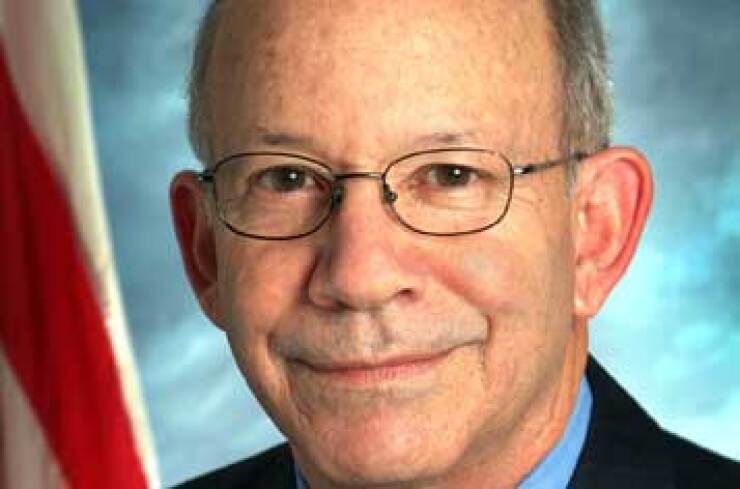
WASHINGTON Congress should pass a short-term transportation bill by mid-March so that the construction season can be as robust as possible, the top Democrat on the House Transportation and Infrastructure Committee said Thursday.
“States start heavily committing themselves to the summer construction program in March, and if there is uncertainty, particularly in states that are highly dependent on federal revenues, it’s likely that they will cancel or postpone projects,” Rep. Peter DeFazio, D-Ore., told reporters after giving a speech at an American Association of State Highway and Transportation Officials conference.
The current federal surface transportation funding law expires May 31, and the federal Highway Trust Fund is running out of money.
During his speech, DeFazio said that he and Rep. Bill Shuster, R-Pa., chair of the transportation committee, can work out policy differences for a long-term bill, but the challenge is figuring out how to raise the revenue to pay for it.
The tax-writing committees have jurisdiction over funding for the bill, not the transportation policy committees. DeFazio said that House Ways and Means Committee Chairman Paul Ryan, R-Wis., is opposed to raising or indexing the federal gas tax and is interested in using revenue from tax reform to pay for a long-term transportation bill. However, tax reform can’t be completed by May.
DeFazio said he is unsure of when Republican leadership will want to put forward a short-term extension. The Republican leadership has just begun to have conversations about this topic with Shuster, he said. DeFazio said he would be open to the federal government borrowing money to finance a short-term bill. The federal government can borrow money for infrastructure investments “and the returns will far exceed the cost of the interest no matter how you’re paying that back,” he said.
In the past, DeFazio has proposed several ways to fund infrastructure in the long term. He has proposed raising the federal gas tax and indexing it to construction cost inflation and fleet fuel economy. He has also proposed repealing the federal gas tax, and instead raising the tax on barrels of oil that are processed into gasoline, with a similar indexing of that tax.
A voluntary repatriation holiday, which some lawmakers want to provide revenue for transportation funding as part of tax reform, would actually lose money, DeFazio said. Interest in Congress in “devolution,” or transferring authority over transportation to states, appears to be a non-starter, with Senate Environment and Public Works Committee Chairman Jim Inhofe, R-Okla., acknowledging it wouldn’t work, DeFazio said.
DeFazio’s home state of Oregon has undertaken a pilot program on vehicle miles traveled fees. He called using VMT fees “a work in progress,” but said he would like to incentivize states or regions to experiment with them. The country could move more quickly to using VMT for commercial vehicles than it could for personal vehicles because there wouldn’t be the same loss of privacy concerns, he said.
“I think VMT is in the future. Its time has not yet come,” he said.
DeFazio also said that, public-private partnerships, state and local bonds and infrastructure banks can’t fully solve the country’s infrastructure problems.
Bringing back some form of earmarks, which target funding to specific projects or initiatives, would help to sell the public on a long-term transportation bill and convince members of the public that a gas tax increase would benefit them, DeFazio said.





